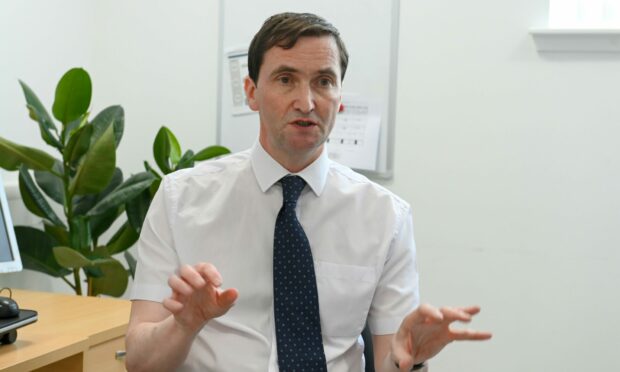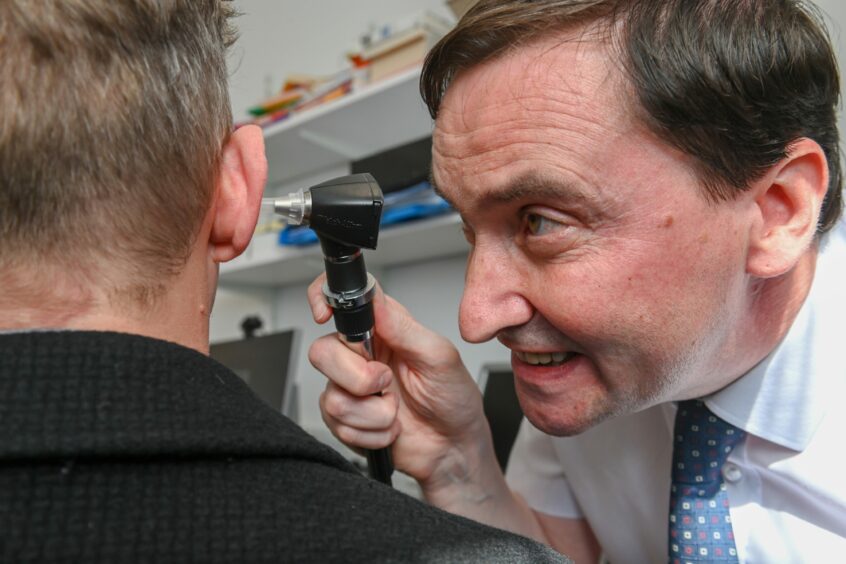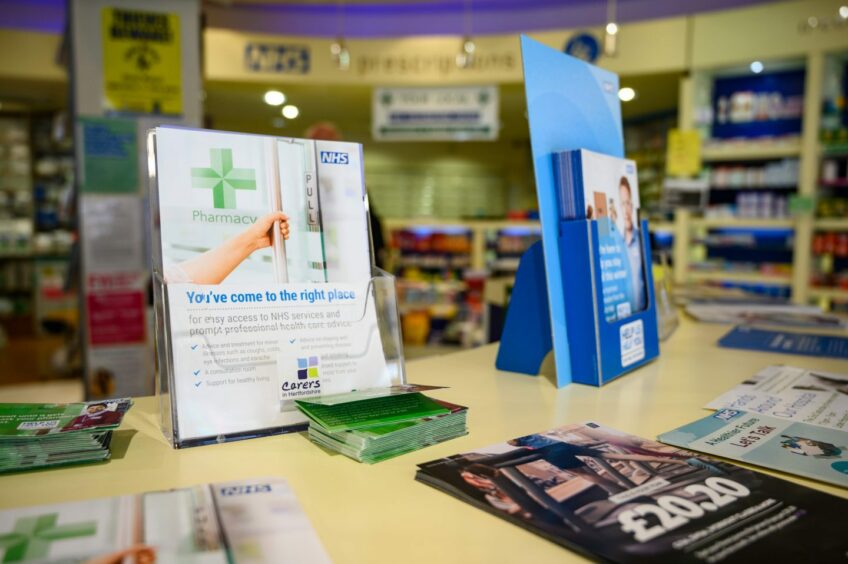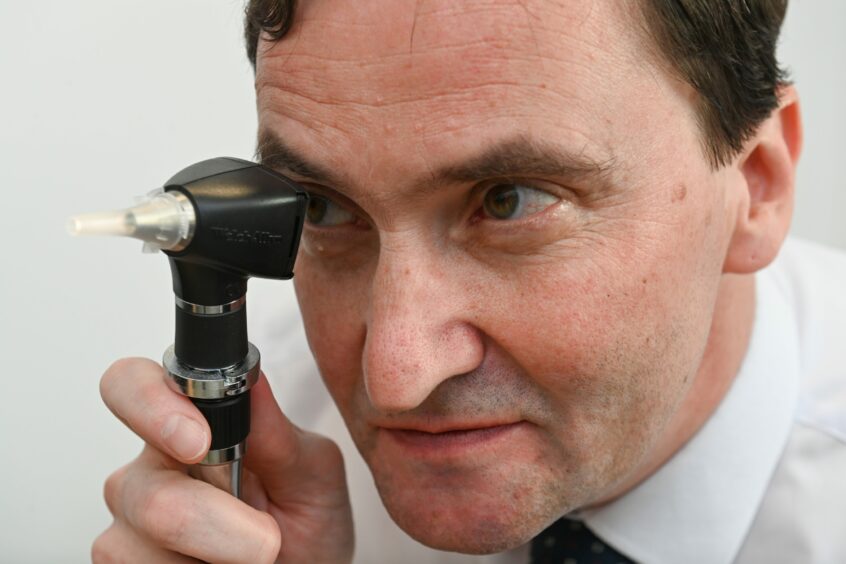For anyone worried about how difficult it is to secure appointments with your local GP, Aberdeen-based doctor Chris Provan has some news for you.
It’s going to get harder.
Dr Provan, an Aberdeen GP for more than 30 years, says that increasing shortages caused by an inability to train and retain GPs means patients can no longer automatically expect a doctor’s appointment.
Instead, they may have to make do with a pharmacist, a physio or even a “care navigator” — the new word for GP receptionists.
Patients will be “guided in other directions,” says Dr Provan, who in November will become the new chair of the Royal College of General Practitioners Scotland, an advocacy group that looks after the wellbeing of GPs.
This should free up space for GPs to only see those that most need help.
Crucially, it will also help reduce the number of appointments Dr Provan and his colleagues squeeze into each day, a number that often stands at more than 40.
The high workload is pushing older doctors into retirement and recent graduates off to countries such as Canada and Australia for less punishing conditions.
“We don’t have enough staff,” says Dr Provan. “And we have increasing pressure on the system. Over the last 30 years patients are getting more complicated because they have multiple illnesses, it’s an older population, people’s expectations have increased.
“It’s a great job, but it’s just the pressure of volume.”
‘Scary’ stats highlight GP work pressures in Aberdeen
Dr Provan is aware some people extend little sympathy to GPs, who are relatively well-paid.
He’s also keenly attuned to complaints that it is impossible to see a doctor these days.
But he says too many GPs already sacrifice a normal life for their patients, and the cracks are showing.
According to the RCGP’s latest wellbeing survey, two-thirds of Scottish GPs already feel they are working at 110% capacity. Two-thirds, at least once a month, reach a stage where they think they can no longer cope.
“It’s those type of figures, which are a bit scary, which are leading people to retire,” Dr Provan says. “We need a national conversation about what we do about this.”
‘We’re in danger of being a floating medical school’ says Aberdeen GP
Dr Provan uses his own Elmbank Group Practice — next to Aberdeen Royal Infirmary — to illustrate just how much staffing levels have fallen by.
Despite a huge increase in demand, Elmbank still only has seven GPs; the same number it had when Dr Provan was a trainee there.
In that same time, the accident and emergency department across the road at ARI has gone from four doctors to about 20. The number of hospital consultants has gone up by 30%.
“This is not a moan, it’s just where we are,” Dr Provan says. “And I really value my hospital consultant colleagues.
“But we need to think about how we retain our GPs, and we need to retain them so they can train the next generation.”
One solution is to recruit more from overseas.
Dr Provan praises the UK’s “world-renowned” international medical graduates (IMG) training scheme. But too often that investment is wasted — 28% of GPs leave the UK after the training ends.
“We’re in danger of being a floating medical school for other places in the world,” Dr Provan says.
Locums brought in to run north-east GP surgeries
The lack of GPs has already had repercussions in the north and north-east.
General practices are generally run by a group of GPs as a business, with the NHS giving them a set amount of funding.
However, over the past few months, some practices facing staff shortages have been forced to end their contracts with the NHS.
Locums — effectively freelance doctors — are then brought in to run the surgeries.
A practice in Inverurie was about to go down this route in September before a rescue plan was hatched.
Last week, the Braemar Health Centre revealed its sole full-time GP was planning to retire without a replacement.
Dr Provan says the problem is especially acute in the north of Scotland because it is difficult to convince GPs to relocate.
But wherever locums are brought in, it is the public that loses out.
“There is a big impact on patients,” Dr Provan says.
“They lose that relationship and continuity with a GP.
There’s huge evidence that having more GPs improves the health of the population and continuity with a team or a GP means that you health is better.”
Should we cut the number of Aberdeen GP appointments available a day?
For Dr Provan, the aim is to bring the number of daily face-to-face appointments for GPs down from its current rate above 40 to a more manageable 25.
This would benefit patients, but also doctors, some of whom are dangerously close to their own limits.
“I know some GPs who are on antidepressants and anxious and are not well themselves,” the Aberdeen doctor says. “If you look at the stats on GPs health, we’re more likely to commit suicide than the general population.”
Dr Provan says even he can feel daunted by the big list of patients he faces when he comes into work.
“It’s makes you feel a bit anxious,” he admits.
However, he praises the team he has around him at Elmbank. Plus, he has other coping mechanisms.
“I’m an Aberdeen football fan,” he says. “I go and shout at 22 men chasing a ball, which I think is very therapeutic.”
And while he still loves his job, it has got more intense over the years.
“It does give you a sense of satisfaction,” he says. “There’s just slightly less of it.”





